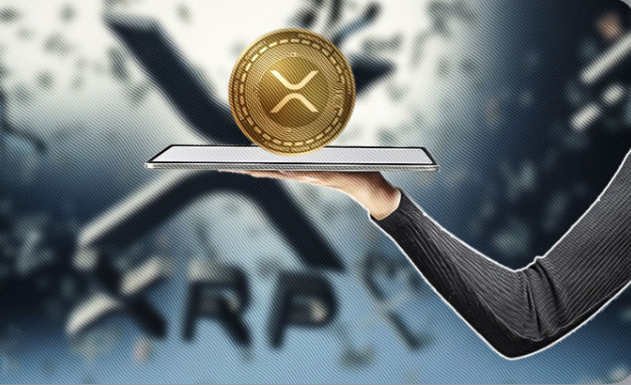Phishing scam fraudulently claims Ripple’s XRP token allocation.
Fraudsters leverage self-custody and token enhancement as bait.
Vigilance over 24-word recovery phrase confidentiality is essential.
In an alarming revelation, a recent tweet from Derekareid, a zealous XRP enthusiast based in Scotland, warns of a deceitful phishing campaign. He disclosed screenshots of a dubious email he’d received, marking a striking uptick in scams preying on unwary crypto aficionados.
Per the reports, the fraudsters, posing as Ripple Labs, circulated the email from the sham address xrp@bounce.yandy.com. It cunningly dangled the bait of an “XRP Token Allocation Program.” Recognizing the potential danger, Derekareid turned to Digital Perspectives, a celebrated figure within the XRP community, to help broadcast this cautionary tale.
Phishing Scare: Ripple Scam Email Widely Circulated Within XRP Community
However, the tale doesn’t end here. Besides Derekareid, numerous other crypto users have reportedly received similar emails, painting a worrying picture of the scam’s extensive reach. Among the voices rising in concern, one individual alleged receipt of 15 identical scam emails.
Furthermore, a renowned blockchain advocate, Jacob Canfield, recently fell victim to a similar phishing attack. Consequently, he emphasized this vital message by sharing his harrowing experience with a scam email, purportedly from the Ripple team.
Canfield’s warning highlighted the perils of fraudulent token allocation programs aimed at the XRP community. Significantly, he warns that any emails with the subject “the allocation program” are fraudulent and designed with the malicious intent to drain XRP.
Scammers cleverly imitate prominent crypto organizations to swindle digital assets and personal data, posing a grave risk to user accounts. They manipulate victims into divulging their 24-word recovery phrase, which should always remain confidential.
The Deception Unveiled: A Closer Look at the Phishing Email
According to reports, the email boasts of a token allocation program, deceitfully claiming Ripple’s intention to redistribute reserve XRP tokens. Moreover, it incentivizes XRP holders by promising token enhancements based on network activity. It unabashedly calls recipients to register for their token share using a fraudulent tool linked within the email.
Further, in a cunning twist, the email extols the virtues of self-custody and essential ownership awareness. It even tempts users with a 15% token increase for new XRP accounts and rewards for NFT collection and DEX trading activities.
Pervasive Threats to the XRP Community
The proliferation of scams doesn’t limit itself to a single method of attack. A high-profile XRP advocate, John Deaton, fell victim to a similar cyberattack in June. Hackers hijacked his Twitter account to propagate a fraudulent “Law” token.” Additionally, these scams don’t only target seasoned crypto enthusiasts but also seek to exploit newbies entering the XRP community.
Hence, the crypto community must remain informed and vigilant. Prioritizing security practices and due diligence will prove crucial in safeguarding digital assets from such nefarious threats. With the XRP community under a phishing siege, it is vital to avoid clicking unknown or suspicious links and protect confidential recovery phrases from prying eyes.

